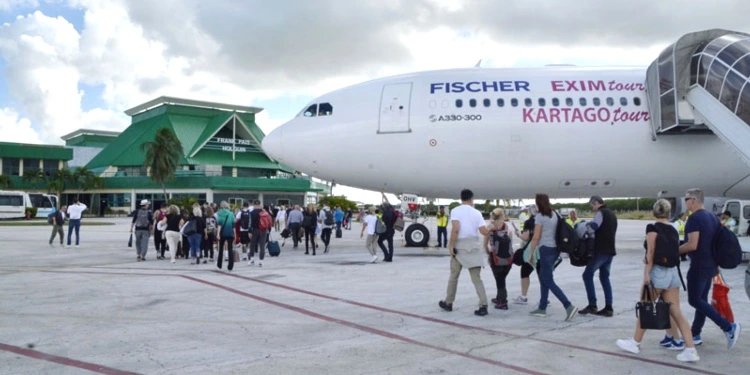SLP, Mexico.- The Cuban regime announced this Monday that as of June 30, the tourist card required for visitors international, and only the electronic visa will be accepted.
Giana Galindo Enríquez, commercial director of the Ministry of Tourism (MINTUR), explained to the media officialdom Since July 2024, both forms have coexisted, but from now on the electronic visa will prevail as a way to enter the country.
To obtain the electronic visa, tourists visiting Cuba must access the official site, a procedure that, as promoted by the regime, “speeds up the process and allows them to complete the online traveler form from the comfort of their home.”
He system electronic visa, called Evisa, was implemented last year to offer “a more efficient and agile service to users who request it through Cuban consular offices abroad,” and eliminate “the need for additional physical documents,” like the tourist card.
The MINTUR official highlighted the “convenience” of the electronic modality and also reported that, following the request of many tourists, the temporary mobile telephone lines, from CubaCel Tur, can be obtained for seven days and not for 30 as they were enabled.
Although the authorities are trying to relax measures to promote tourism, the sector’s mediocre figures continue to indicate that tourist activity is far from reaching pre-pandemic numbers.
According to Galindo, Cuba “continues to be the preference of tourists,” and “is a competitive destination in the Caribbean region,” but the Island barely reached 2,005,390 international travelers between January and November 2024, which represented a decline in the 7.9% compared to the same period in 2023.
Tourist destinations in the region such as Punta Cana (Dominican Republic) and Cancún-Tulum (Mexico) are experiencing record numbers of visitors, but equivalent destinations on the Island are declining.
The weakness of Cuban tourism – the economic engine of the Island for years – is explained, among other reasons, by the crisis that hits the country, which includes the deterioration of the hotel sector, the serious energy deficit of the Island, the lack of food, the decline of the healthcare sector and US sanctions
Despite this, the propaganda of the Castro regime exalts the abundance and comfort of its hotels, while inviting people to live “unique experiences” in the country.
In December, the Canadian chain Blue Diamond Resorts promoted “the new jewel” in its portfolio, the Resonance Hotels brand.
Designed for “travelers in search of unique experiences,” the luxury line offers themed parties, crossfit, DJ performances and “endless fun”; yoga, pilates, tai chi exercises and workshops aimed at various learning, “with tourism focused on health.”














